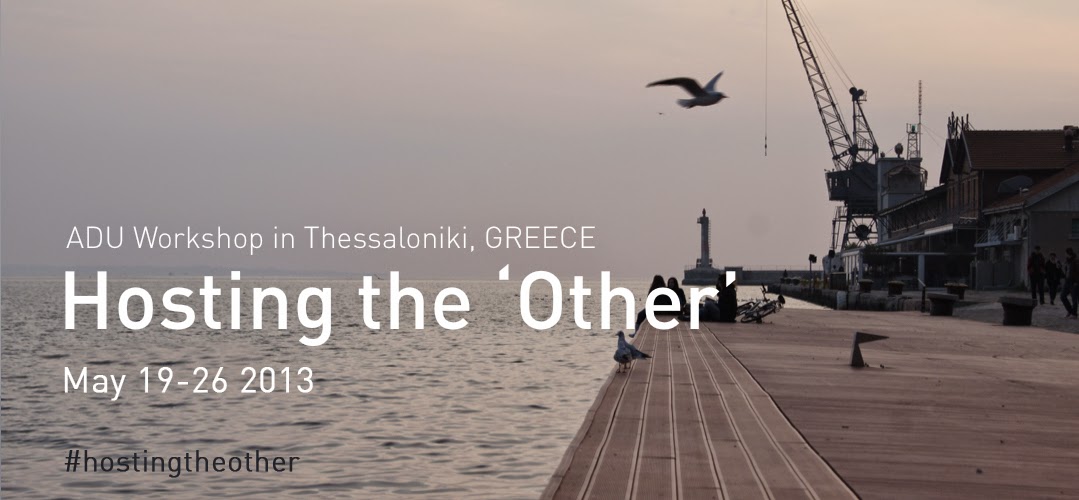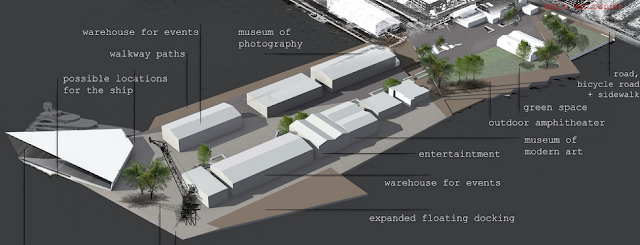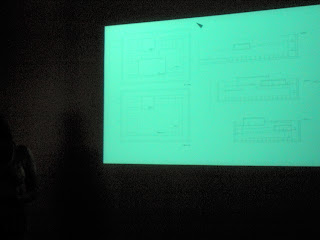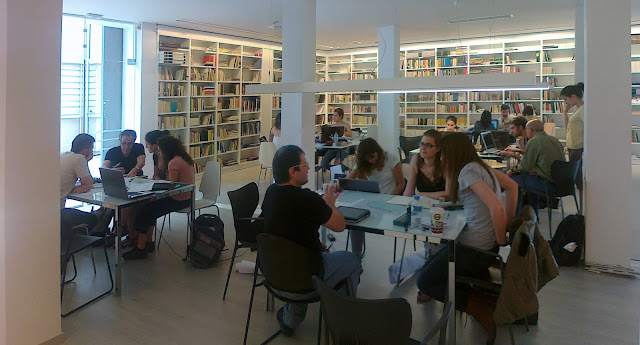Κυριακή 2 Ιουνίου 2013
Σάββατο 25 Μαΐου 2013
HostingTheOther Final Presentation
The final presentation will take place on SUN 26.05
at 11.30 pm at the Museum of Photography Café (the same place where the other
two presentations took place).
Each team will have 10 minutes to present their project followed
by another 10-15 minutes of comments and critique. The presentation should
consist of 2(minimum) to 4(maximum) digital images/slides: 1 slide should describe the main idea,
1 slide should show the actual proposal while the other 2 extra slides might be
used to add detailing or focus on certain parts/aspects of the project.
Παρασκευή 24 Μαΐου 2013
Τετάρτη 22 Μαΐου 2013
Τρίτη 21 Μαΐου 2013
Δευτέρα 20 Μαΐου 2013
1st Presentation, TUE 21
First scheduled presentation is on Tuesday 21 at 14.00.
All teams/groups will present their projects via their blogs and their should make a reference to the following issues/points:
-a brief of the project
-idea/understanding of the concept of the workshop ("hosting the other")
-design process
-side issues encountered during the design process.
All teams/groups will present their projects via their blogs and their should make a reference to the following issues/points:
-a brief of the project
-idea/understanding of the concept of the workshop ("hosting the other")
-design process
-side issues encountered during the design process.
HostingTheOther DAY I, SUN 19
 |
| Meeting at the cafe of the museum of photography (warehouses at peer 1of the port of Thessaloniki) |
-Presentation of the site (port of Thessaloniki).
-Presentation of the significant historical role of the port of Thessaloniki.
-Students formed groups and they got to meet with the attendants.
Δευτέρα 29 Απριλίου 2013
Workshop brief
Traveling Cultures or hosting the
‘Other’
This workshop
intends to enhance students’ creative and practical skills required to deal
with the increasing complexity and multicultural nature of our contemporary
society, and its public spaces through the design of a specific public
building-space, the 'Traveling Cultures' program host point. The project draws
upon its unrivalled setting in Thessaloniki, its old port, a place of dynamic
urban changes, cultural diversity, award-winning regeneration schemes, and
innovative approaches to the problems and opportunities produced in our fast
changing world.
The project will adopt an
education philosophy based on knowing-in-action, integrating theory in a
workshop-based format. It will develop the creative and practical design skills
between urban and architectural scale. The design studio will act as the very
hub of the project and will provide a test bed for fresh approaches, ideas,
theories and design interventions that deal with contemporary issues and the
diverse activities of architectural-urban design in type and scale. The public
place students are asked to design is concerned with the urban quality of
specific public places that surround the site. We will specifically work on
infilling a site on the Port with a bold proposal that will enhance the site
and will accommodate and facilitate intercultural exchange.
The City
-Thessaloniki as a crossroad
-A multicultural city at least in
the last three centuries
-Migration and immigration. A
significant number of immigrants from Europe, Asia, Africa, China
-Contemporary Thessaloniki a
multi-cultural, multinational, multi religion European environment
Under the strong
internationalization tendencies, to re-think and to protect the different, the
unfamiliar, the unknown, the strange, the varying, that is to say the OTHER
could be an imperative priority. In a fast changing world, to rethink architecture as not necessarily
stable and unchanged form and space but as adaptive, transformable,
convertible, mutable, agile...
In order to enhance the links between
the Mediterranean Counties, the European Union introduced a program called 'Traveling
Cultures'. In this program each Mediterranean Country uses a properly equipped
ship which will curry some of the most representative
elements of its Culture (music, painting, food, cinema, dance, ...) and will
visit different ports in order to present for a certain period of time its
Cultural identity to the citizen of this city. For this purpose, Mediterranean
cities organise in their ports a specific building infrastructure, which will
host this visit and will facilitate the development of the cultural activities,
which will take place during the visit of the ship. This way this particular
location becomes a place for knowing other cultures and experiencing the habits
and cultural products from other societies. This place changes its character
very often and is permanently adapted to the particularities of the hosted
cultures.
The City of Thessaloniki have
decided to create this hosting place in order to enhance the integration of the
Greek society with the other mediterranean cultures, the locals and the
'others'; to offer possibilities and opportunities to other cultures to be
present and to be presented, re-presented, integrated, accepted, understood,
amalgamated, promoted and advocated.
The Site
The site of the project is
located on the old port of Thessaloniki. An area which is actually is more and
more dedicated to cultural activities of the city. There are several possible
locations for the 'Traveling Cultures' host point from which students will have
the possibility to select one and to argue on their choice.
The Brief
The open-ended brief for the
buildings expects from the students to accommodate a versatile space for
exhibition and other events, a small auditorium (200 seats), two small office
spaces, a meeting room, a cafe with facilities that can act as the
infrastructure for food festivals outdoors. It would be interesting to
anticipate that the threshold between outdoor and indoor space should b loose as
the local weather allows for activities outdoor for more than 1/3 of the year.
The language and materiality of the building could be investigated to address,
reflect and express its multicultural physiognomy, always situated and part of
its strong urban context of the city of Thessaloniki.
Considerations
The public building in a given
context
The public building and the time.
Adaptability, transformability, responsiveness.
The ‘life’ of the building and
the ‘living’ in the city
The Process
Sunday 19 May 2013 Arrival of ADU Partners, introduction of the local
teaching staff to the guests. Visit of the site, presentation of the proposed
educational objectives. Debate, proposals, adaptations, organisation of the
work, distribution of tasks and activities.
Monday 20 to Saturday 25 May 2013 work of students in
the workshop.
Sunday 26 May 2013. Final presentation of the
projects. Debates, comments, conclusions.
Εγγραφή σε:
Αναρτήσεις (Atom)


















































